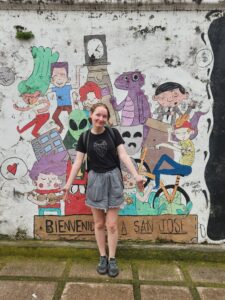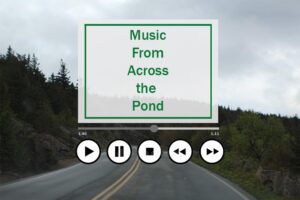Nepal is unlike anything I have ever experienced. I have absolutely no idea how to describe everything that is different about this place, because everything is different.
Some context: there are about 20 people in my program. We are situated a bit outside Kathmandu right now, at a place called Purevision. We’ll be here for a few more days before we move in with our host families.
When I got here, I immediately assumed this place was an Eastern tourist trap for Westerners 101, but it’s not at all.
One theme of this program — and much of Eastern philosophy — is paradox. Purevision is the epitome of this. There is a spa, but people take pilgrimages here, because this place is considered a holy site. Our rooms are ornate, with comfy beds and beautiful rugs, but they ask that you take bucket showers to conserve water (there are shower fixtures, though, and some students just use those anyway). The food is absolutely incredible — but you shouldn’t drink the running water, unless you already spend all of your time on the toilet.
The students are similarly paradoxical. Most of them are studying anthropology, sociology or global studies at small liberal arts schools, who use a lot of politically correct lingo. They preach tolerance, and yet some of them are quite intolerant of other moral viewpoints. I myself don’t really like politically correct culture. I believe it’s elitist; I think the excessive emphasis on “recognizing your privilege” covers up many other intricacies of life under umbrella terms like mansplaining, identity, intersectionality and allyship.
But here’s what I realized. If I just complain about this stuff, without actually engaging, I am literally doing exactly what I complain that other people do. So, last night, I stayed up until 1 a.m. with this total rockstar-of-a-guy, Mike, talking about intersectionality. For those of you who do not know, intersectionality is the idea that not only does race matter as an identity and gender matter as an identity (among other things), but the combination of these factors matters as well. A queer black female has a different experience than, say, a queer white female — or a queer black male, for that matter. Intersectionality is the recognition of this. I think that recognizing that stuff is crucial. But I still don’t like intersectionality.
Allow me to explain my situation. As a white male, I’m presumably just loaded with privilege. Not many intersections going on. But — but — I have Familial Mediterranean Fever Syndrome (FMF). Look it up if you’re curious, but suffice to say I spent one-third of middle school in bed with fevers, joint pain and a mind working at a 50 percent capacity. It affects me to this day, but to a lesser degree. In theory, intersectionality works to point out that combinations of factors are important, and we should consider them — but in reality, only a few pop culture factors (income, gender, sexual orientation and a few more) are discussed in most of the literature on intersectionality.
My point is not that it leaves me out of the conversation on intersectionality. The point is that many of its advocates seem to view intersectionality as the only (not even the best, but the only) way to talk about this stuff. Other frameworks for exploring the same issues are rejected outright, for no other reason than that they are not intersectionality.
To Mike, it was abhorrent that I don’t support intersectionality. But he did his best to listen to my perspective, albeit while he was quite pissed off at me. He heard me out, though. He’s one of the few people that has. And that’s paradoxical, too.







